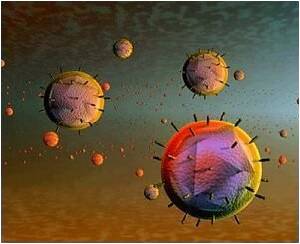Scientists find 80% reduction in liver metastasis brought about by colon cancer. Nanoparticles were used to slow down the growth of the blood vessels that reach the tumour cells.

In order to find out what is actually causing this change in the endothelial cells, the UPV/EHU's Signaling Lab Research Group and the Department of Pharmacology, Pharmacy and Pharmaceutical Technology of the University of Santiago de Compostela, in collaboration with other groups of researchers, embarked on research using mice. The ultimate aim was, as Badiola pointed out, "to slow down the metastatic process by impacting on angiogenesis in the event of bringing about the restoration of the endothelial cells". In the research they induced liver metastasis in mice by using colon cancer cells and from the mass they extracted endothelial cells. They then compared these endothelial cells with other healthy ones. The comparison made covered two aspects: on a protein level, in which they saw which proteins appeared and which did not in each cell type, and to what degree they did so, and in the same way with respect to the degree of micro-RNA. Micro-RNA consists of small elements which for some time were not thought to perform any function but which are now known to play a role in protein regulation.
Using Biocomputing tools they screened and selected the proteins and relevant micro-RNA elements, and "in the final step in this selection process we ended up with a specific micro-RNA: miR-20a. This is an element that appears in healthy endothelial cells, but disappears in those that are in contact with the tumour. We saw that due to the disappearance of the miR-20a in the endothelial cells, a set of proteins appeared and that was when their behaviour began to change and they started to grow and move around," explained Badiola.
Restoring miR-20a using nanoparticles
They then started experiments to see whether including the miR-20a element would restore the behaviour of the endothelial cells that supply the tumours. To do this, they developed nanoparticles "designed to target the endothelial cells in the liver and loaded with miR-20a. We administered them to mice in which we had previously induced metastasis to find out the effect. The pathological analysis revealed that, in the cases treated, far fewer new blood vessels had formed inside the tumours. We also confirmed that the number and size of the metastatic masses had fallen by 80%", he said.
Badiola positively rates being able to reduce metastasis size by 80%, but he makes it clear that "if it is ever used as a treatment, it will be a complementary treatment. You can't ignore the fact that the metastasis goes on growing 20% and, what is more, at no time are the tumour cells destroyed nor are they attacked directly. The strategy of tackling the metastasis that we have achieved involves limiting the supply of nutrients and oxygen; in other words, we restrict the help".
Advertisement













